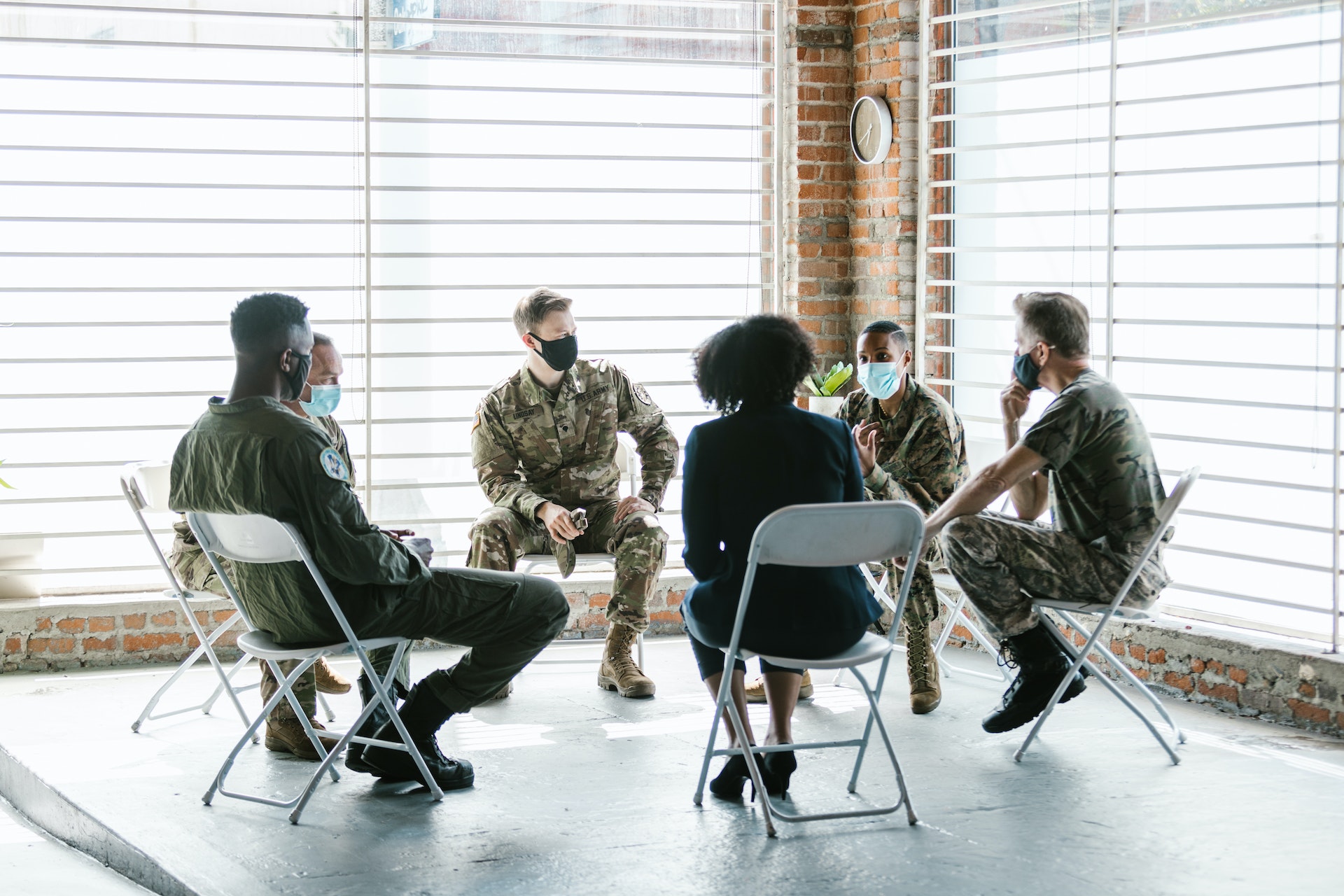
The journey to healing from Post-Traumatic Stress Disorder (PTSD) or from substance abuse can be challenging and lonely. However, shared experience support groups offer a beacon of hope, providing people with a safe and understanding space to connect with others who have experienced similar challenges. In this article, we will explore the benefits of shared experience support groups for individuals navigating either PTSD or substance abuse recovery. We will also discuss how to find the courage to attend these groups, fostering a sense of empowerment and community as people embark on their path to healing.
Cover photo by RDNE Stock project
What to Expect from Shared Experience Support Groups
A Safe Haven of Understanding
Shared experience support groups are environments free from judgment, where individuals can openly express their feelings, fears, and triumphs. Everyone present has walked a similar path, creating a profound sense of understanding and empathy among group members.
Validation and Belonging
Being part of a shared experience support group provides validation, assuring individuals that their feelings and experiences are valid and shared by others. This sense of belonging can be particularly empowering during times of isolation or when facing the challenges of recovery.
A Source of Practical Guidance
Group members often share their personal journeys of healing, offering practical advice and coping strategies that have worked for them. These insights can provide valuable guidance and inspiration for others in the group.
Emotional Release and Catharsis
Sharing one’s struggles and experiences can provide a cathartic release of emotions. As people open up, they often find a significant weight lifted off their shoulders, fostering emotional healing and personal growth.
Building Resilient Connections
Shared experience support groups create an environment for building connections with others who understand and relate to each other’s experiences. These connections can become a network of support during challenging times.
Sense of Empowerment
Being part of a shared experience support group instills a sense of empowerment and control over one’s healing journey. The collective strength of the group can inspire people to face their fears and challenges head-on.
How to Find the Courage to Visit a Shared Experience Support Group
Acknowledge the Need for Support
The first step in finding the courage to attend a support group is acknowledging the need for support and connection. Recognizing that healing can be enhanced through shared experiences with others who understand can be a powerful motivator.
Start with Online or Phone Support
For those who may be hesitant to attend an in-person group, exploring online or phone-based support groups can serve as an initial step. Virtual interactions can provide a sense of safety and anonymity.
Talk to a Trusted Friend or Therapist
Reach out to a trusted friend, family member, or therapist about your interest in attending a support group. Their support and encouragement can provide reassurance and motivation.
Research Support Groups
Research local or online support groups that focus either on PTSD or on substance abuse. Look for groups with positive reviews and experienced facilitators who create a welcoming and respectful environment.
Attend with a Companion
If the thought of attending alone is daunting, consider asking a friend or family member to accompany you to your first support group meeting. Having a familiar face by your side can ease initial nerves.
Set Realistic Expectations
Approach the support group with an open mind and realistic expectations. Healing is a process, and connecting with others in the group takes time. Be patient with yourself as you build connections and navigate your healing journey.
Conclusion
Shared experience support groups offer a lifeline of hope and healing for people grappling with recovery from PTSD or from substance abuse. Within these groups, everyone can find solace in shared understanding, validation, and belonging. The camaraderie of others who have walked a similar path serves as a powerful source of resilience and empowerment.
To find the courage to attend a shared experience support group, one can take incremental steps, starting with online or phone-based support before transitioning to in-person groups. Seeking the support of trusted friends, family members, or therapists can also provide encouragement on this path to healing.
As individuals embrace the healing journey together, they discover the transformative strength of shared experiences and build a network of understanding and support that paves the way to recovery and renewed hope.


